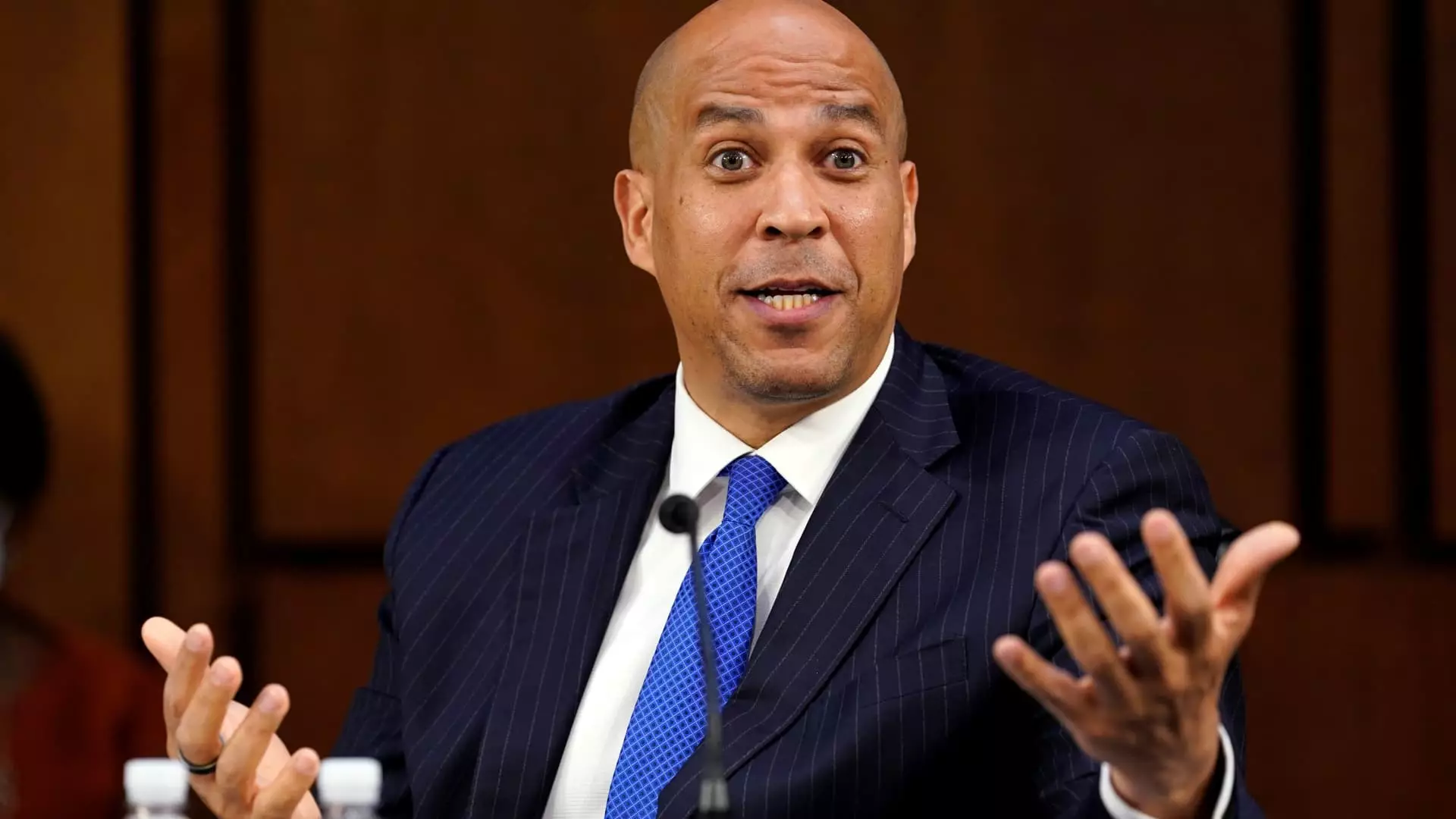In the bustling arena of American politics, the confluence of wealth, technology, and ideology is increasingly at the forefront of national discourse. Take, for example, the recent conflict between tech mogul Elon Musk and Senator Cory Booker. In a stunning rejection, Booker openly refused for Musk to donate to his campaign while simultaneously urging him to engage in the ongoing political tug-of-war surrounding a controversial GOP-backed spending bill. This moment encapsulates a critical juncture in American politics—where financial influence meets moral responsibility.
Booker’s stance serves as a powerful reminder of the ethical dilemmas that loom overhead when billionaires like Musk enter the political fray. While Musk has become a polarizing figure for many, extending beyond mere social media antics, the implications of his influence reach deep into the fabric of our democracy. The senator’s insistence that Musk must take active measures to oppose legislation he deems “disastrous for our long-term economy” reflects a growing concern surrounding how unregulated financial power could undermine democratic processes.
Dissecting Musk’s Dual Role
Musk’s dual role as an innovator and influencer complicates his political footprint. Despite his title as a visionary leader heralded for pushing technology boundaries with Tesla and SpaceX, his forays into political commentary bring both opportunity and disruption. When he labeled the spending bill a “disgusting abomination” on social media, a cascade of reactions spurred from both sides of the political aisle. It’s fascinating to observe how a single post can shift perceptions and rally factions, but it’s equally alarming to consider the potential consequences when tech titans wield their power carelessly.
Cory Booker’s call for Musk to take a more proactive stance against certain policies underscores a broader challenge for modern Democrats. It highlights a tension between progressive ideals and the acceptance of billionaire philanthropists attempting to exert their influence on political matters. While some like Rep. Ro Khanna suggest that the Democratic Party should embrace individuals like Musk, it’s essential to scrutinize what that might mean for future governance. Should the party represent the collective will of the populace, or should it bend to accommodate the whims of tech moguls chasing power?
Economic Fallout and Our Shared Future
What truly stands at stake is not merely party affiliations or personal vendettas, but the economic wellbeing of millions of Americans. The “One Big Beautiful Bill Act,” as it stands, has drawn heavy criticism, particularly for its impact on vulnerable communities. Described as a vehicle to extend tax cuts and bolster border security, it simultaneously threatens essential welfare programs like Medicaid and food assistance. The legislation’s ramifications are profound, casting a long shadow on the financial stability of low-income families.
This is where Musk’s involvement could complicate matters even further. While he and some Republicans argue against the bill’s potential to increase federal deficits, the stark reality remains that average Americans could find themselves facing soaring costs—an outcome alluded to by Booker’s vehement critiques. In a time of economic strife where inflation gnaws at the fabric of daily existence, simplistic platitudes from billionaires about financial issues carry the risk of drowning out the narratives of those most affected.
Musk has famously upset traditional norms, and whether he would favor Democrats or Republicans often feels secondary to his public persona. However, as Trump noted in his scathing critique of Musk’s possible political alliances, the stakes are high. The former president indicated that Musk could face “serious consequences” should he pivot his financial support toward the Democratic Party, highlighting the polarized and treacherous landscape in which these tech titans operate.
As we navigate this new political climate, it becomes increasingly vital to question the role wealth plays in shaping the future of American democracy. The interplay between individuals like Musk, the policies they support, and the moral implications of such affiliations requires scrutiny. When power lies in the hands of a select few, the specter of corruption looms larger—a reminder that democracy thrives not just on the principle of equality but also on a balanced distribution of influence. As citizens, we must ensure that our representatives act for the common good and not simply cater to the interests of the wealthy elite.



Leave a Reply